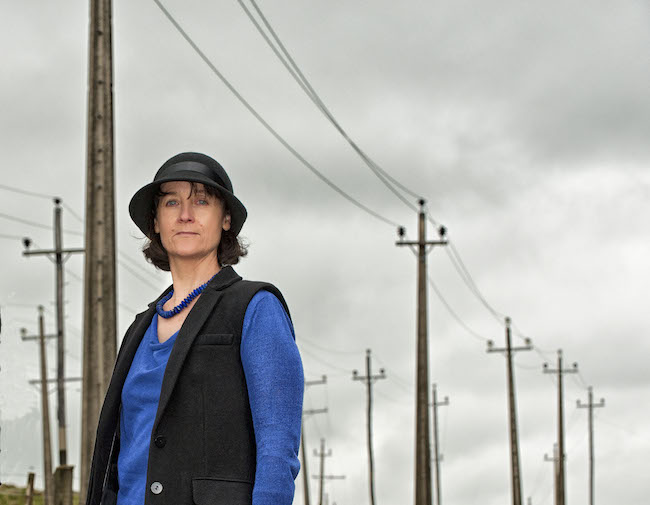
Dr Janet Stephenson, Director, Centre for Sustainability.
New research shows a 'business as usual' approach will not work for New Zealand's regional councils, and over a quarter of our local councils, who are facing extreme exposure to climate hazards like coastal erosion, flooding and rising groundwater levels.
Recently concluded research, by a team led by University of Otago Centre for Sustainability Director Dr Janet Stephenson, draws on stories and insights from community members, iwi members and council staff from around the country.
The report highlights how, in coming years, communities will have to make near-impossible decisions on key issues – from how to pay for expensive coastal defence systems to "when we should think about picking up our survey pegs and walking backwards from the coastline".
Communities will face increasing physical, social, financial and emotional challenges, and councils are already looking to central government to provide a cohesive framework for the planning and funding of adaptation. But to minimise suffering – and to adapt successfully – local authorities also need new ways to engage with communities, the report says.
Stephenson says the project's findings (Climate adaptation, vulnerability and community well-being), suggest that council engagement with communities about climate impacts requires more than 'business as usual' engagement processes, because:
- Adaptive decisions will need to be made at many points in time, probably over decades
- These decisions often have to be made without a full understanding of what the future holds
- Multiple individual decisions could result in inequitable outcomes, unless council has an overview of implications for the entire community
- The community members most severely affected may well be those who are least empowered and least accustomed to 'having a say' in council decisions
- It takes time to build the trust and capacity to be involved in decisions that have such far-reaching implications
Along with advocating for a more nimble response to pressing issues, the research enriches the existing Ministry for the Environment (MfE) Coastal Hazards and Climate Change Guidance by providing advice for councils and community groups on how and when to engage on climate change.
The MfE guidance recommends a Dynamic Adaptive Pathways Planning (DAPP) approach to engagement, according to which critical decision points for adaptation investments are pre-defined.
This new research supports local government staff (from adaptation advisors to community development teams), and community groups themselves to build community readiness to engage at these critical decision points.
It also provides accessible tools for those who want to organise together to build resilience, including:
- Policy guidance (including an engagement framework), for local government adaptation and community development staff
- A report from a survey of councils, which explores why councils find it so challenging to meaningfully engage (background report for researchers or those seeking more in-depth information)
Researchers also provided conversation starters for councils and communities:
- A short graphic story introducing two young friends who live in a community affected by climate change. The pair reveal how devastating climate change can be and begin to understand the strength communities have when they work together on solutions.
- Two short videos based in South Dunedin, one exploring a neighbourhood's response to the 2015 floods and subsequent events, the other exploring Dunedin City Council's response and move towards proactively planning for climate hazards:
The team's research, which was conducted in conjunction with the National Science Challenge's Deep South Challenge, has already received huge interest from local government, and in response, Dr Stephenson and her team will present three online seminars for Local Government New Zealand EquiP Training, the first of which is scheduled for 16 July 2019.
- Impacts on Communities (LGNZ website)
For more details about the Deep South Challenge: www.deepsouthchallenge.co.nz






